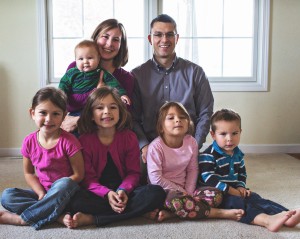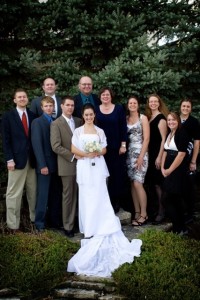Today the Lent Book Series features Marc Cardaronella.
What if I told you that giving up chocolate, or any other food, will not make you truly holy?
I hate to burst your bubble during Lent, but I thought you needed to know.
Of course, fasting and abstinence are part of our Lenten disciplines, and bodily mortifications will always be an important part of Catholic spirituality.
However, according to Fr. Lorenzo Scupoli, focusing solely on fasting and other external sufferings and deprivations will not get you where you want to be. They might even do more harm than good.
So where does real Christian perfection lie and how to you obtain it? That is the subject of Fr. Scupoli’s book, Spiritual Combat: How to Win your Spiritual Battles and Attain Inner Peace. Fr. Scupoli was a Theatine priest during the Counter-Reformation dedicated to renewing the spiritual life of the Church.
Spiritual Combat was very well-known and recognized during this time as a masterpiece of spiritual teaching. It was a favorite of St. Francis de Sales and deeply influenced him. He carried this book in his pocket for 18 years.
The term spiritual combat or spiritual warfare commonly refers to fighting against Satan and/or his demons. You may have heard of deliverance prayers or casting out spirits of oppression in the name of Jesus. In this book, it’s a little bit different. Here the combat is not directly against Satan, but against yourself.
Because of the Fall, we are full of disordered passions and desires. These can lead us astray in so many ways, it’s hard to count. God’s love calls to us. It’s engraved in our hearts, but our hearts are confused. So we have to attack and destroy these wayward desires in order to follow God in truth.
To this end here are the four weapons you need to become a victor in the spiritual conflict. An explanation of these four weapons makes up the major sections of Spiritual Combat.
1. Distrust of Self
Distrust of self is the foundational element in spiritual combat. Without it, you don’t have a chance.
We really don’t have any strength on our own, and yet we convince ourselves that we are completely self-sufficient. We mistakenly think we can take care of any problem on our own. This is a bad idea.
God wants us to see that:
“He alone is the Source of all good, that all virtue and grace descend from Him to us, and that from ourselves nothing can come, not even a good thought that would be worthy of His approval” (p. 13).
2. Trust in God
Distrust is essential, but it’s not enough.
“There is need to add to it perfect trust in God, in the hope and expectation that He alone will vouchsafe to us every good thing we need: His help and the victory…with the help of our Lord, we may be assured of success at all times, provided that, to obtain His aid, we arm our hearts with a lively confidence in Him” (p. 19).
3. Spiritual Exercises
This is the largest section of the book. It provides very practical ways to guard your heart, have the right motivation, overcome and resist temptation, turn to God after you sin, and strive for virtue.
4. Prayer
The final section on prayer discusses the habits necessary to enact all the previous weapons. It’s the glue that holds them together and makes them effective.
“Needful above all is prayer…by means of which we may obtain from our Lord, not only the things already named, but all other good things. For prayer is the means by which we obtain all the graces that rain down upon us from the Divine Fountain of goodness and love. By prayer, if you use it aright, you will put a sword into the hand of God, with which He will fight and conquer for you” (p. 121).
Spiritual Combat is a great exposition of the traditional spirituality of the Church. This is the way Saints are made. It’s not for the faint of heart, but it’s practical and effective. It’s a serious manual for those who want a powerful spirituality to overcome their temptations and sins.
Consider taking up the challenge and reading this book for Lent. It will open your eyes to the truth of the war going on inside your heart, and give you real tools to win the fight.
I guarantee you’ll never see yourself the same and never simply give up chocolate for Lent again.
Marc Cardaronella is a Catholic writer and speaker living in Champaign, IL. A former Navy pilot, he gave up the fast life for a more rewarding career as a Director of Religious Education. He is currently the father of two young boys and writes about why people believe in Jesus Christ (and why they don’t) on his personal blog. Follow him on Twitter –@MCardaronella and Google+.
 ——
——
You might also be interested in:
*Marc and I have known each other since both he and my husband Joseph were both speakers at a local evangelization conference many years ago (the mid to late aughts?). There was a dinner at a great Italian restaurant (sadly, no longer there) the night before for speakers and spouses. Joseph & I sat with Marc & his lovely wife Shannon. That night, Marc and Shannon introduced us to the fun and relatively new app called Shazam. I’m sure you all know about Shazam, but if you don’t go download it–our family uses it all the time to find out what song is playing on the radio.
*Shannon Cardaronella was one of the first “Readers” I featured when I began my column and the “Meet a Reader” feature for The Catholic Post. Reading through this again reminded me how much Shannon and I are kindred spirits when it comes to books–now I need to find out if she is on GoodReads so we can compare books.
*I had to laugh when I read the first line of Marc’s contribution here–“What if I told you that giving up chocolate, or any other food, will not make you truly holy?”– since I am firmly in the camp of “I.must.give.up.chocolate.for.Lent.” One of the few comments I’ve left on Marc’s blog (though I’m an avid reader) was about that very subject, and how I don’t agree with his view. I know what people like Marc mean when they say Lent is not just about giving up chocolate, but I personally feel it important to sacrifice for many reasons. Chiefly, I need something tangible that I love to give up and complain about during Lent, in a funny way, that doesn’t make other people miserable (like the year when I gave up caffeine–don’t ask). Yes, I can and do give up or have other spiritual practices no one knows about. But giving up chocolate is my right as a Catholic and I’m not surrendering it.
*Lest you think I’m negating Marc’s review of Spiritual Combat, know that I’m not. One of the best and worst things about doing this Lent Book Series is getting to learn about a lot of new or new-to-me books that are then added to my impossibly long to-read list. Usually each month I request one or two of the books that each “Meet a Reader” discusses, but Lent for me has been like a six-week long “Meet a Reader” with so many great books to explore. It’s a bit overwhelming, in a good way. Spiritual Combat is near the top of the list.
Do you have a favorite book so far in the Lent Book Series?








